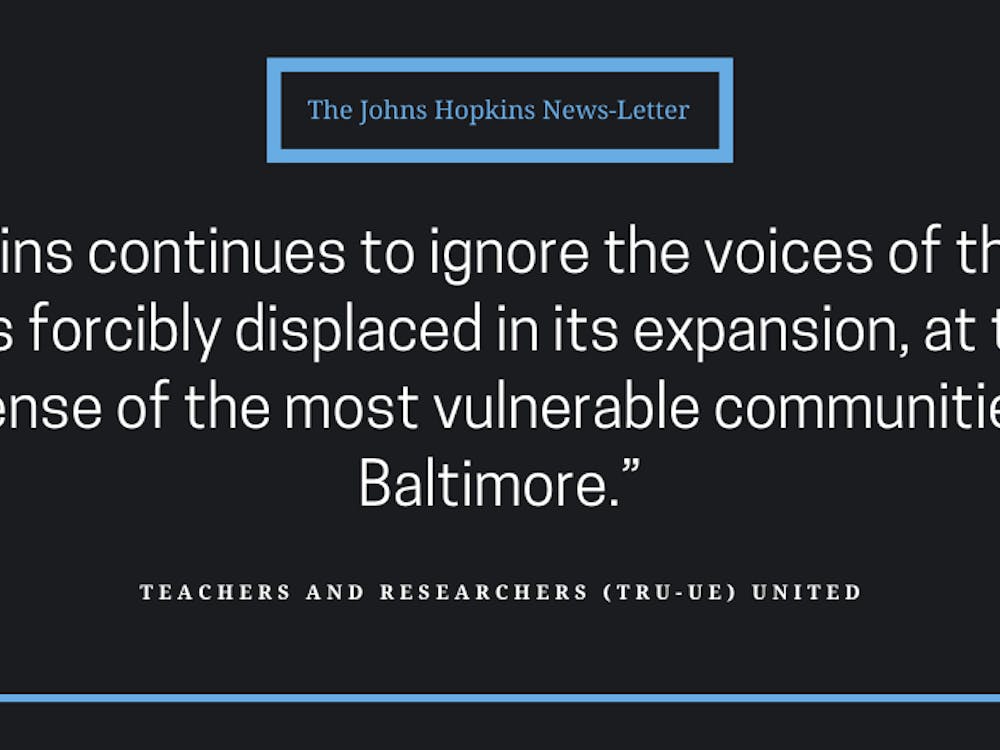The balance between resolving the Palestinian refugee crisis and preserving Israel as a Jewish state served as the theme of Tuesday’s J Street U event, the third of its four-part “Is Peace Possible?” discussion series. Attracting approximately 20 students, the event provided a venue for open discourse.
“Our goal was to open up conversation, and I think these videos are a good way to talk about difficult things and bring different people together. There are some things in these videos that almost everyone disagrees with, but this is a way to not necessarily present J Street U’s opinion, but to show what some experts have been discussing,” junior Rachel Cohen, former president of Hopkins J Street U, said.
The event featured a video produced by The Atlantic and the S. Daniel Abraham Center for Middle East Peace, which examined the controversy surrounding the almost 5 million registered Palestinian refugees.
It addressed the discord between Israel and Palestine surrounding the placement of blame for the crisis.
Beyond this, it covered previous proposals for resolution that have been discussed and the compromises that have been made over time.
The video commented on main distinctions between Israeli and Palestinian demands for reconciliation.
For instance, the Palestinian government wants citizenship for the refugees, while the Israeli government wants Palestine to recognize Israel as the Jewish state.
It concluded with a discussion of the Palestinian refugees’ main needs: citizenship, permanent place of residence, and compensation.
“I was struck in [a] positive way. The video makes us remember that people have been working on this issue for a long time, and how much closer they get to agreement every time. I think what happens in negotiations is different than front pages and public statements, so it’s very heartening to see that the countries have made these concessions and agreed to aspects of these proposals in the past, and will probably do so again,” Cohen said.
Student discussion groups addressed whether the refugee crisis is a foundation issue to work out first, or if it must come about during other negotiations and whether it is Israel’s responsibility to help with the Palestinian refugees’ resettlement, residence, and rehabilitation.
They also discussed the role that other countries play in the situation and whether there is a viable agreement to resolve this crisis.
So far, J Street U members have found these weekly discussions especially effective.
In terms of educating and reinforcing knowledge, the event has been successful in the eyes of J Street U’s leaders.
“I think the series has been successful so far: it’s a really good place to talk about the conflict and to get informed. Even people who already know about the issue can learn more from the different perspectives posed during discussions. We have gotten a lot of people out here: most of our club members attend, in addition to many who just hear about it and decide to participate,” freshman Carly Greenspan, J Street U member, said.
The final segment of the series is this Tuesday.






















Please note All comments are eligible for publication in The News-Letter.